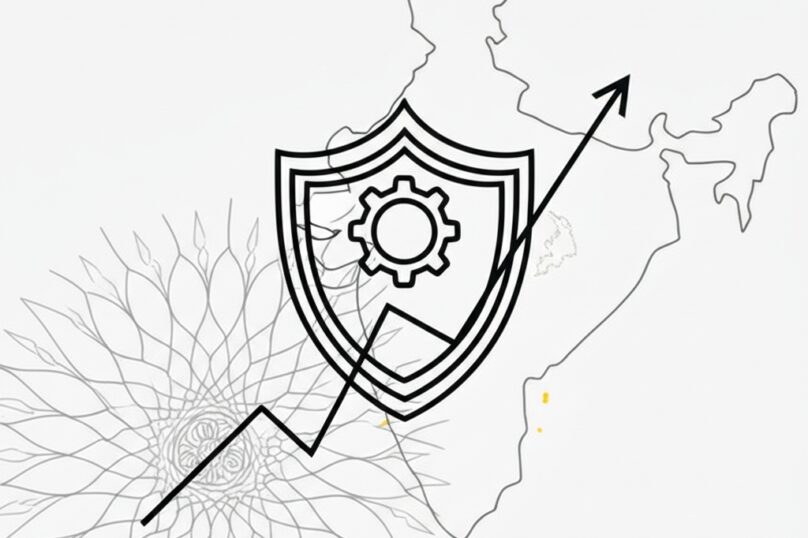Understanding Crisis Management & Business Continuity

Hello amazing business owners, marketers, and leaders!
Imagine this: You are running your business smoothly, and suddenly, something unexpected happens. It could be anything – a natural disaster, a sudden power cut, or even a customer complaining badly online. What do you do? How do you keep your business going? This is where Crisis Management and Business Continuity come into play. They are like your business’s superhero shield and backup plan!
What is Crisis Management?
Think of Crisis Management as dealing with a big problem when it happens. It’s about how you react quickly and smartly to stop a bad situation from getting worse. It’s like when your car gets a flat tyre – you stop, assess the situation, and change the tyre.
For example, remember when Chennai faced heavy rains and floods some years ago? Many small shops and businesses in areas like T. Nagar were hit hard. A good crisis plan would help them know what to do immediately, like moving valuable stock to a higher place or informing customers about closures.
What is Business Continuity?
Now, Business Continuity is about making sure your business keeps running even if a big problem occurs. It’s about planning ahead so that essential parts of your business don’t stop. If crisis management is changing the flat tyre, business continuity is making sure you have a spare tyre and the tools ready before you even start your journey.
Let’s say “Aachi Mess,” a popular chain of restaurants in Coimbatore, suddenly has a power outage for a whole day. Without electricity, they can’t cook, use billing machines, or even open. A good business continuity plan for Aachi Mess would include having a strong generator, a backup system for their billing, or even a plan to shift some operations to another branch temporarily. This ensures customers can still enjoy their delicious food!
Why are These Important for Your Business?
In today’s fast-moving world, anything can happen. From power cuts in rural Tamil Nadu to a bad review going viral on social media, problems can pop up anytime. Having a plan means you:
- Save Money: Less time wasted, less damage.
- Keep Customers Happy: They trust you can handle tough times.
- Protect Your Brand: Your reputation stays strong.
- Stay Ahead: Your competitors might not be prepared, giving you an edge.
Simple Steps for Crisis Management:
It’s not as complex as it sounds! Here are some simple steps:
- Spot What Can Go Wrong: Sit with your team and think about all the possible bad things that can happen. What if your main supplier in Tiruppur suddenly stops delivering? What if your website crashes?
-
Plan Your Response: For each problem, write down what you will do. Who will do what? What steps will you take?
Example: “Kumaran Textiles” in Madurai faced a sudden labour strike a few years back. Their crisis plan included immediately talking to union leaders, informing their large retail clients about potential delays, and finding temporary workers if needed. -
Talk Clearly and Quickly: When a crisis hits, tell your customers, employees, and anyone else who needs to know, what’s happening. Be honest and quick.
Example: When a software glitch affected many users of “Chennai Tech Solutions” payment app, they immediately sent out push notifications and updated their social media, explaining the issue and when it would be fixed. This built trust. - Learn and Improve: After the crisis is over, look back. What went well? What didn’t? Use these lessons to make your plans even better for next time.
Simple Steps for Business Continuity:
This is about keeping the lights on, no matter what!
- Know Your Key Functions: What are the absolute most important things your business does to run? Is it sales, production, customer service?
-
Create Backup Plans: For each key function, have a “Plan B.”
Example: If your internet goes down (common in remote parts of Tamil Nadu), do you have a mobile hotspot ready? If your main delivery truck breaks down, do you have a tie-up with a local transport company? -
Test Your Plans: Don’t just write a plan; try it out! Do a “mock drill” every few months.
Example: A famous hotel group in Ooty makes its staff practice fire drills and power outage scenarios yearly. This ensures everyone knows what to do if a real emergency happens. - Review and Update: Your business changes, and so do risks. Review your plans regularly – maybe once a year – and update them.
A Real Tamil Nadu Example:
Consider “Valluvar Stores,” a popular chain of grocery shops across districts like Salem and Erode. During the initial days of the lockdown, they faced a massive supply chain disruption.
Crisis Management: They immediately communicated with their customers about stock availability, managed crowd control at stores, and informed employees about safety measures.
Business Continuity: They quickly set up a local delivery system using their own staff, tied up with smaller local farms directly to ensure fresh produce, and even started a WhatsApp ordering system. This allowed them to continue serving the community while many other shops struggled to open. Their quick thinking and existing network helped them pivot.
So, dear entrepreneurs, don’t wait for a problem to hit. Start thinking about Crisis Management and Business Continuity today. It’s not just about protecting your business; it’s about ensuring you can continue to serve your customers and build a stronger, more resilient brand, just like our successful businesses in Tamil Nadu.
Ready to make your business crisis-proof? Start planning now!
